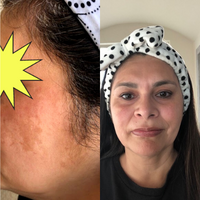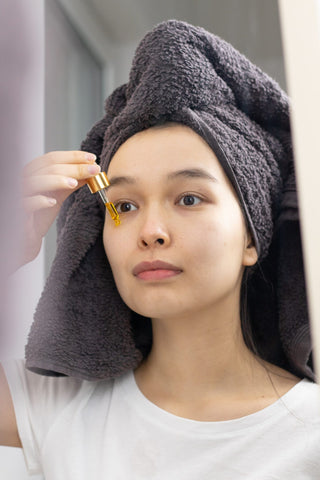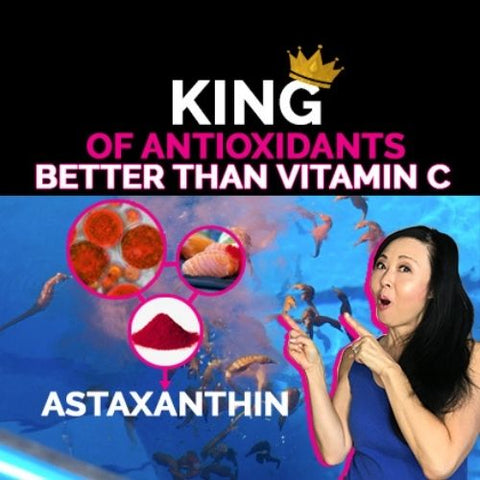Are you thinking of using hydroquinone for hyperpigmentation? Perhaps you are thinking about using hydroquinone for hyperpigmentation but you have heard of some of the risks associated with hydroquinone.
For those of you who have not heard of hydroquinone, hydroquinone is a topical skin bleaching agent that is commonly used for hyperpigmentation such as age spots, lentigines, melasma, post inflammatory hyperpigmentation and freckles.
Hydroquionone can come in over the counter (OTC) formulation of up to 2% and higher concentrations can be prescribed by a dermatologist or your primary care doctor (typically about 4%).
It can come in:
-Creams
-Emulsions
-Lotions
-Gels
-Solutions
How does Hydroquinone work for Hyperpigmentation?
Hydroquinone for hyperpigmentation works to lighten the skin by blocking melanin production. It prevents the enzyme tyrosine to Dopa (dihydroxyphenylalanine) resulting in reduction of pigment.
The result is a reduction in the number of melanocyte which then reduces the transfer of melanin leading to lighter skin.
Precautions of Using Hydroquinone for Hyperpigmentation:
Whenever you are using products to help lighten hyperpigmentation whether it is:
-Retin A or Retinol
-Glycolic Acid or other AHAs
-Hydroquinone
You must use sunscreen. You can also get hydroquinone in combination with other ingredient such as tretinoin, and/or corticosteroids.
Side Effects of Using Hydroquinone:
The side effects of using hydroquinone for hyperpigmentation can include:
-Dryness
-Contact Dermatitis
-Redness
-Irritation
-Itchiness
-Blisters/oozing
The following side effects have been attributed to prolonged exposure to hydroquinone:
-Loss of elasticity of the skin
-“Impaired wound healing exuding a foul fish odor”
-Ochronosis-bluish black pigmentation with caviar like papules
-“Pseudo yellow nail syndrome”-comes from the oxidation/polymerization of by-products from hydroquinone. This comes from chronic usage of hydroquinone.
It is recommended to NOT use hydroquinone regularly for more than 4 months at a time to avoid the side effects of some these risks.
***Avoid using near the nose, lips, and eyes.***
If you are reading this blog post an you are in:
-Japan
-European Union
-Australia
This skin bleaching agent is banned.
As far as here in the US, the FDA proposed a ban on the OTC products containing the ingredient back in August 29, 2006.
There was some evidence that hydroquinone may be a carcinogenic. This was based on a study based on rodents and NOT on humans.
There has not been any clinical study proven done on humans.
There have been some studies that shows abnormal function of adrenal glands and high levels of mercury in people who used cosmetics containing hydroquinone.
Some examples of prescription with hydroquinone are:
Lustra
Tri Luma
EpiQuin Micro
***PRO TIP**
If you decide you want to use this, here are some pro tips:
- Exfoliate the skin to increase absorption rate.
- Apply directly on dry skin. Do not add any serums before or after application.
- If you want to extend the usage time of hydroquinone for maintenance, you can:
-use it just a few times a week. Such as 2-3x /week
-just on weekends
OR
During the time that you are NOT using Hydroquinone for hyperpigmentation, you can use other ingredients that are known to inhibit the production of tyrosinase in between that you are NOT using hydroquinone.
6 Anti Aging Benefits of Niacinimide
My Skin Care Routine for Hyperpigmentation
Hyperpigmentation Treatments for Dark Skin
As previously mentioned in some of the previous videos, several studies have shown that hydroquinone gives the best results when combined with other ingredients such as a retinoid and corticosteroid and even other treatment methods such as acid peels and/laser treatments.
Laser Treatment for Melasma and Dark Spots
If you don’t know what tyrosinase inhibitors are or what they do OR want other tips on hyperpigmentation, please watch our hyperpigmentation playlist.
If you have decided against using hydroquinone, here are some tips on how to treat hyperpigmenation NATURALLY
If you have used hydroquinone , please let us know how long you have used it, what you have used, and what you Fitzpatrick Skin type is in the comments below.
Remember:
Make is an ART
and
Skin Care is a SCIENCE
Follow us @:
Boutique /
Instagram:https://www.instagram.com/GoSeeChristy/
Facebook: https://www.facebook.com/goseeChristy…
Twitter: https://twitter.com/goseechristy
Pinterest: https://www.pinterest.com/goseechristy/
Sources used :
https://www.aocd.org/page/Hydroquinone
https://www.ncbi.nlm.nih.gov/pmc/articles/PMC3663177/
https://www.ncbi.nlm.nih.gov/books/NBK539693/




